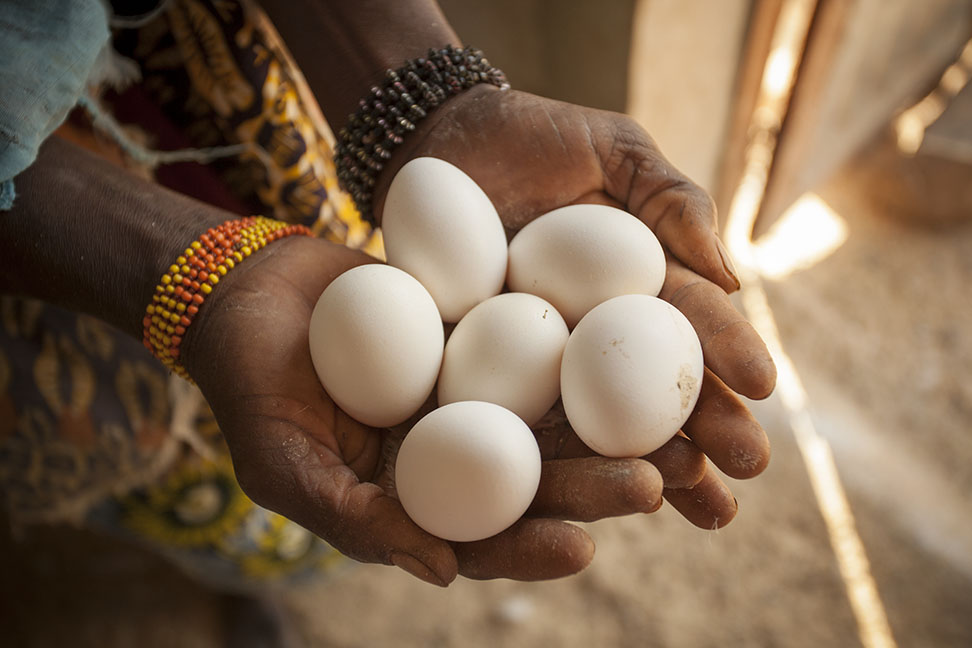MCC’s five-year compact with Burkina Faso ends on July 31. This story is part of a series of blogs and stories to be published during the month of June that highlights the accomplishments of this compact through the voices of the people who will benefit most from MCC’s investments in Burkina Faso. Read the stories and learn more about the Burkina Faso compact.
MCC helped Missita Déme build a henhouse behind her mud-brick home in northern Burkina Faso and trained her on better ways to raise chickens.

“Life is better,” she said, “and I’m not done yet.”
Déme is an early success of the Agriculture Development Project, part of Burkina Faso’s $480.9 million compact with MCC, which focuses in part on helping livestock producers practice techniques that aim to increase value through improved animal husbandry techniques.
In the 20 months since Déme attended her first training, she has sold nearly 200 improved variety chickens. The hens are selling for as much as $4.25 each, while roosters are selling for more than $5.25.
In addition to her training, MCC provided an incentive kit containing cement for walls, roofing material, vaccinations against deadly Newcastle disease, and an improved-variety rooster. MCC initially planned to provide 350 such kits to producers from the area, but they proved so popular that the program was expanded to another 188 producers, said Stephane Tuina, a veterinarian who works on implementing the project.
Veterinarians and extension agents provide training on improved breeding and flock management, and they follow up in person to answer questions. The Burkinabé government’s animal resources agency will continue providing training after the compact ends in July.
“Since she started working [with chickens], the extra income has really helped support our family,” said Déme’s husband, Yacouba Sanogo, who helped his wife build the three houses. “We can pay bills more easily and really help our kids.”
The couple’s five children all attend school, and they have purchased bikes they can ride to classes each day. The couple recently purchased two sheep for breeding, and they want to plant more valuable crops on land they own outside their village. Additional revenue from her poultry operation also allows them to pay for a visit to a health clinic if a family member falls ill.
“Things are changing for us and our community,” she said. “We’re giving our children a better future.”

